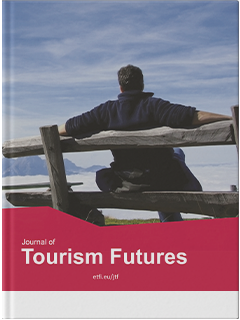Exploring governance effectiveness, tourism development and poverty reduction relationship in SAARC countries using panel dynamic estimation
IF 6.6
Q1 HOSPITALITY, LEISURE, SPORT & TOURISM
引用次数: 1
Abstract
PurposeThe present study aims to examine the moderating impact of governance quality on the tourism poverty nexus using a panel of six South Asian Association for Regional Cooperation (SAARC) countries during the period 2002 to 2019.Design/methodology/approachFor the soundness of the results, fully modified ordinary least square (FMOLS) and dynamic ordinary least square (DOLS) econometric models were applied to determine the long-run relationship.FindingsThe findings confirmed the positive and significant impact of tourism development (international tourism arrival) and governance quality (effectiveness of governmental services) on poverty (per capita household consumption) reduction. Interestingly results confirm that governance quality and tourism development have complementary impacts on poverty reduction.Originality/valueThe present study has twofold contributions; First, despite the high potential of SAARC tourism, research remains limited in studies examining the role of tourism and governance quality on poverty reduction within the SAARC region. As a result, the present paper presents critical insights into the impact of tourism inflow and governance quality on poverty reduction in South Asian countries. Second, to the best of the author's knowledge, this is the first attempt to conduct an econometric analysis to examine the role of governance quality on the relationship between tourism inflow and poverty reduction in SAARC countries.利用面板动态估计探讨南盟国家的治理效率、旅游业发展和减贫关系
目的本研究旨在使用由六个南亚区域合作联盟(SAARC)国家组成的小组,在2002年至2019年期间检验治理质量对旅游业与贫困关系的调节作用。设计/方法/方法为了结果的可靠性,应用完全修正的常最小二乘(FMOLS)和动态常最小二乘(DOLS)计量经济模型来确定长期关系。调查结果证实了旅游业发展(国际旅游业的到来)和治理质量(政府服务的有效性)对减少贫困(人均家庭消费)的积极和重大影响。有趣的是,研究结果证实,治理质量和旅游业发展对减贫具有互补影响。原创性/价值本研究有两方面的贡献;首先,尽管南盟旅游业潜力巨大,但研究旅游业和治理质量在南盟区域内减贫方面的作用的研究仍然有限。因此,本文对南亚国家旅游业流入和治理质量对减贫的影响提出了重要见解。其次,据作者所知,这是首次尝试进行计量经济学分析,以考察治理质量对南盟国家旅游流入与减贫之间关系的作用。
本文章由计算机程序翻译,如有差异,请以英文原文为准。
求助全文
约1分钟内获得全文
求助全文
来源期刊

Journal of Tourism Futures
HOSPITALITY, LEISURE, SPORT & TOURISM-
CiteScore
15.70
自引率
6.00%
发文量
64
审稿时长
34 weeks
期刊介绍:
 求助内容:
求助内容: 应助结果提醒方式:
应助结果提醒方式:


